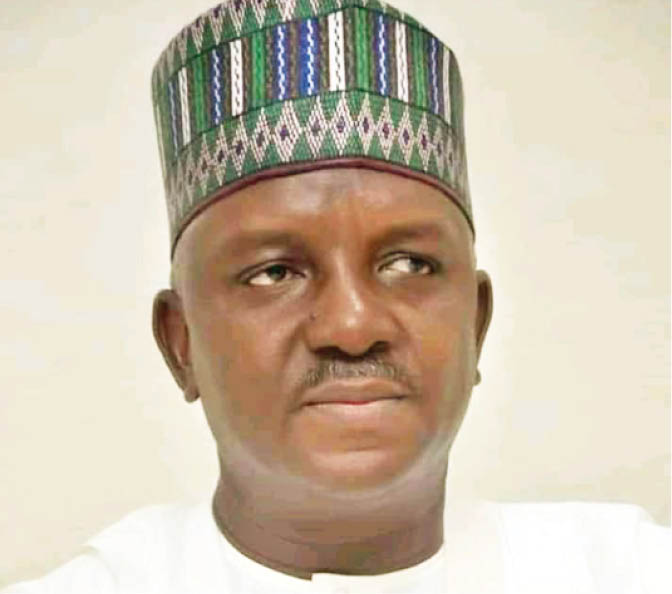Mixed reactions continue to trail the recent electricity tariff review by the Nigeria Electricity Regulatory Commission (NERC) despite its denial of approving any tariff increase yet.
In a statement, Mr Usman Arabi, NERC’s General Manager, Public Affairs, on Friday in Abuja, said the minor review implemented by the commission was a retrospective adjustment of the tariff regime released in 2015
He said that was to account for changes in macroeconomic indices for 2016, 2017 and 2018.
In an exclusive chat with Daily Trust, The Director General, Manufacturers Association of Nigeria (MAN), Segun Ajayi-Kadiri, in his reaction said the recent increase in electricity tariff is rather unfortunate, giving the circumstances private businesses are facing and the fact that there is no indication that, going by the enormity of the challenges confronting the privatized power sector, there would be commensurate improvement in the quality and hours of supply.
Ajayi-Kadiri said: “It is generally known the annual per capital estimated billing put out by DisCos is far more than what is truly supplied. To the average Nigerian, the increase is even seen as stratospheric
“However, what we are witnessing is not unexpected and has been the constant agitation of the DisCos in the name of cost reflective tariff.”
He said, the DisCos have maintained that the poor supply is majorly due to paucity of resources, which is a direct consequence of charging rates that do not cover their costs.
He said, however that it was also the opinion of some that the situation was principally a lack of capacity to manage the business and resulting from wrong business judgement/calculation or module from inception.
Kadiri said: “So, for the average manufacturer, this is bad news. Not so much in the sense of the increase, but because we are not certain that the increase will result in improved supply. For some, it may as well continue to be paying more for services not rendered, especially for those high demand users who are not metered.
“Generally speaking, except the increase in tariff is matched by improved supply, the multiplier effect will be higher cost of production and the resulting increase in prices of products; reduction in capacity utilization, un-competitiveness and consequent plummeting profitability.
“However, if the increase, which the NERC and the DisCos have insisted is inevitable, translates to improved quality and supply of electricity, then the bitter pill would have achieved a healing effect.”
Also speaking on the development, the Director General of Nigeria Employers Consultative Association (NECA), Olawale Timothy, said “there has been a consistent agitation by the DisCos, and rightly so, for appropriate pricing of electricity since 2015.”
The agitation was based on the premise that the cost of production was higher than the amount presently charged.
NECA is the umbrella organization of employers in the organised private sector of Nigeria
Timothy said: “While we sympathise with the generality of Nigerians for the increase in electricity tariff, the reality remains that without government’s financial support to the DisCos, the other option is to price the product (electricity) appropriately.
“With the increase in tariff, it is expected that the DisCos will fast-track the distribution of pre-paid meters, upgrade their distribution networks and ensure constant power supply to Nigerians.
“While we note the enormous challenges facing the sector, we urge that all hands must be on deck to ensure that the power sector in Nigeria fulfils its potential as a key enabler of industrialization.”
Daily Trust has reported the Managing Director and Chief Executive Officer of FMDQ OTC Securities, Bola Onadele Koko, as having said that as long as government continued to fix tariff, the power sector may be unable to attract capital.
The CEO said: “This is my personal opinion and very limited. If you compare power and telecoms, the telcos where able to charge what they considered as a fair value for their services.
“As long as you have this thing called tariff and it is the government that fixes it and the exchange rate that is used, because they don’t want us to suffer is N199, it is not going to be commercially viable or attract capital,” he cautioned.
He argued that “we cannot have 200 million people who want light and we think that there is no money in that business.”
“There is something about a free market, People have not put money in the power sector because of the reforms we have not really done in that sector,” he stated.
The Director General of Lagos State Chamber of Commerce and Industry, Dr Muda Yusuf said: “The reality is that private investors in the privatized power sector have severe liquidity challenges.
“Practically all assumptions that informed the investment in the first place have broken down. These are assumptions with respect to tariffs, exchange rate, interest rate etc. It has thus become impossible to operate the key elements of the power value chain as viable commercial entities.
“This is the background to the apparent failure of the power sector privatisation.”
He said the current model of static tariffs in the face of escalating costs simply cannot work.
Yusuf said if the sector has to remain with the private sector, tariff review is clearly inevitable.
He argued that this, however, did not diminish the fact that the private investors perhaps did not do proper due diligence before taking over the sector.
“There were financial and technical capacity issues. For the end users, if steady supply of power can be guaranteed, paying more for power is a sacrifice worth making. It would still be cheaper than depending on diesel or petrol generators. Besides, it would be better for the environment.
“Truth is it would be difficult to attract investors into the sector if the tariff issues are not fixed. Of course it would not be popular, but it is inevitable. The alternative is for the government to take it over and run it as a social service. But the question is, where will the money come from?
“However, it is imperative to ensure effective regulatory framework to protect electricity consumers,” he said.a




